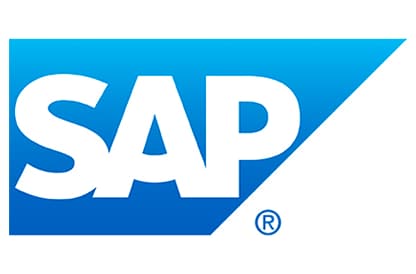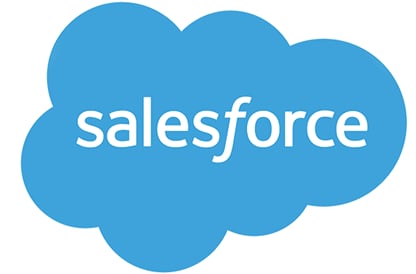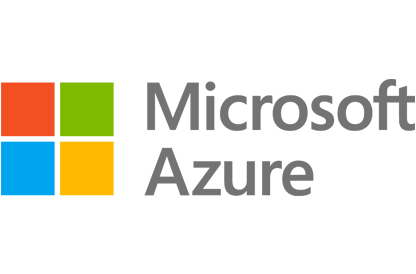Why OpenText
Why OpenText
Overview Why OpenText
OpenText brings decades of expertise to help you unlock data, connect people and processes, and fuel AI with trust
Manage and connect data
Unify data seamlessly across your enterprise to eliminate silos, improve collaboration, and reduce risks
AI-ready information
Get AI-ready and transform your data into structured, accessible, optimized information
Built-in security and compliance
Meet regulatory and compliance requirements and protect your information throughout its lifecycle
Empowering people
Overview Empowering people
OpenText helps people manage content, automate work, use AI, and collaborate to boost productivity
Customers
See how thousands of companies around the world are succeeding with innovative solutions from OpenText
Employees
Our people are our greatest asset; they are the life of the OpenText brand and values
Corporate Responsibility
Learn how we aspire to advance societal goals and accelerate positive change
Partners
Find a highly skilled OpenText partner with the right solution to enable digital transformation
How we compare
Content Management
Service Management
Deploy anywhere
Overview Deployment options
Explore scalable and flexible deployment options for global organizations of any size
Sovereign cloud
Local control. Global scale. Trusted AI
Private cloud
Your cloud, your control
On-premises
Free up resources, optimize performance and rapidly address issues
Public cloud
Run anywhere and scale globally in the public cloud of your choice
AI leadership
Overview Aviator AI
See information in new ways
OpenText™ Aviator AI
AI that understands your business, your data, and your goals
OpenText™ MyAviator
Say hello to faster decisions. Your secure personal AI assistant is ready to get to work
OpenText™ Business Network Aviator
Gain better insights with generative AI for supply chains
OpenText™ Content Aviator
Power work with AI content management and an intelligent AI content assistant
OpenText™ Cybersecurity Aviator
Improve your security posture with AI cybersecurity and agile threat detection
OpenText™ DevOps Aviator
Enable faster app delivery, development, and automated software testing
OpenText™ Experience Aviator
Elevate customer communications and experiences for customer success
OpenText™ Service Management Aviator
Empower users, service agents, and IT staff to find the answers they need
Aviator AI
Overview Aviator AI
See information in new ways
OpenText™ Aviator AI
AI that understands your business, your data, and your goals
OpenText™ MyAviator
Say hello to faster decisions. Your secure personal AI assistant is ready to get to work
OpenText™ Business Network Aviator
Gain better insights with generative AI for supply chains
OpenText™ Content Aviator
Power work with AI content management and an intelligent AI content assistant
OpenText™ Cybersecurity Aviator
Improve your security posture with AI cybersecurity and agile threat detection
OpenText™ DevOps Aviator
Enable faster app delivery, development, and automated software testing
OpenText™ Experience Aviator
Elevate customer communications and experiences for customer success
OpenText™ Service Management Aviator
Empower users, service agents, and IT staff to find the answers they need
Analytics
Overview Analytics
Predict, act, and win with real-time analytics on a smarter data platform
OpenText™ Aviator Search(AI)
Give users access to the answers they need, faster and easier, with multi-repository AI-based search that lets you contextualize everything from clicks to conversations
Business Network
Overview Business Network
Connect once, reach anything with a secure B2B integration platform
Content
Overview Content
Reimagine knowledge with AI-ready content management solutions
OpenText™ Content Aviator(AI)
Supercharge intelligent workspaces with AI to modernize work
Cybersecurity
Overview Cybersecurity
Integrated cybersecurity solutions for enterprise protection
OpenText Cybersecurity for SMBs & MSPs
Purpose built data protection and security solutions
OpenText™ Cybersecurity Aviator(AI)
Reinvent threat hunting to improve security posture with the power of agile AI
DevOps
Overview DevOps
Ship better software—faster—with AI-driven DevOps automation, testing, and quality
Experience
Overview Experience
Reimagine conversations with unforgettable customer experiences
Observability and Service Management
Overview Observability and Service Management
Get the clarity needed to cut the cost and complexity of IT operations
OpenText™ Service Management Aviator(AI)
Redefine Tier 1 business support functions with self-service capabilities from private generative AI
APIs
Overview APIs
Build custom applications using proven OpenText Information Management technology
OpenText™ API Services
Build it your way with OpenText Cloud APIs that create the real-time information flows that enable custom applications and workflows
Device and Data Protection
Overview Device and Data Protection
Protect what matters, recover when it counts
Unified Endpoint Management Tools
- OpenText™ Endpoint Management
- OpenText™ ZENworks Suite
- OpenText™ ZENworks Service Desk
- OpenText™ ZENworks Configuration Management
- OpenText™ ZENworks Endpoint Security Management
- OpenText™ ZENworks Full Disk Encryption
- OpenText™ ZENworks Endpoint Software Patch Management
- OpenText™ ZENworks Asset Management
Solutions
Trusted Data & AI
Overview Trusted Data & AI
Secure information management meets trusted AI
OpenText AI Data Platform
A unified data framework to elevate data and AI trust
OpenText Aviator Studio
A place where you can build, deploy, and iterate on agents in your data's language
OpenText Discovery
A set of tools to help ingest data and automate metadata tagging to fuel AI
OpenText Data Compliance
A suite of services and APIs that make governance proactive and persistent
OpenText Aviator AI Services
Professional services experts who help you on your AI journey
Information Reimagined
Overview Information Reimagined
Get greater visibility and sharper insights from AI-driven information management. Ready to see how?
Knowledge reimagined
Transform daily work with enterprise content management powered by AI
Service Management reimagined
Cut the cost and complexity of IT service management, AIOps, and observability
Connections reimagined
AI-powered B2B integration for supply chain success
Conversations reimagined
Drive value, growth, and loyalty with connected customer experiences
Engineering reimagined
Agile development and software delivery? It only seems impossible
Security reimagined
Cybersecurity for the Enterprise
Decisions reimagined
Unlock insights with AI data analytics
Artificial Intelligence
Overview Aviator AI
See information in new ways
OpenText™ Aviator AI
AI that understands your business, your data, and your goals
OpenText™ MyAviator
Say hello to faster decisions. Your secure personal AI assistant is ready to get to work
OpenText™ Business Network Aviator
Gain better insights with generative AI for supply chains
OpenText™ Content Aviator
Power work with AI content management and an intelligent AI content assistant
OpenText™ Cybersecurity Aviator
Improve your security posture with AI cybersecurity and agile threat detection
OpenText™ DevOps Aviator
Enable faster app delivery, development, and automated software testing
OpenText™ Experience Aviator
Elevate customer communications and experiences for customer success
OpenText™ Service Management Aviator
Empower users, service agents, and IT staff to find the answers they need
Industry
Overview Industry solutions
Improve efficiency, security, and customer satisfaction with OpenText
Energy and resources
Transform energy and resources operations with cloud, cybersecurity, and AI
Financial services
Boost customer experience, compliance, and efficiency with AI
Government
Reimagine your mission with government-secure information management
Healthcare and life sciences
Improve care delivery and patient engagement with AI-powered solutions
Legal
Modernize legal teams with automated, AI-powered legal tech solutions
Manufacturing
Modernize manufacturing operations and logistics to reduce costs and ensure compliance
Retail and consumer goods
Enhance consumer engagement with omnichannel retail solutions and AI
Enterprise Application
Overview Solutions for Enterprise Applications
Run processes faster and with less risk
Services
Services
Overview Services
Achieve digital transformation with guidance from certified experts
Professional Services
Modernize your information management with certified experts
Customer Success Services
Meet business goals with expert guidance, managed services, and more
Support Services
Turn support into your strategic advantage
Managed Services
Free up your internal teams with expert IT service management
Learning Services
Discover training options to help users of all skill levels effectively adopt and use OpenText products
Professional Services
Overview Professional Services
Modernize your information management with certified experts
Customer Success Services
Overview Customer Success Services
Meet business goals with expert guidance, managed services, and more
Support Services
Overview Support Services
Turn support into your strategic advantage
Managed Services
Overview Managed Services
Free up your internal teams with expert IT service management
Learning Services
Overview Learning Services
Discover training options to help users of all skill levels effectively adopt and use OpenText products
Partners
Find a Partner
Overview Find a partner
Information is the heartbeat of every organization. We build information management software so you can build the future
Cloud Partners
Overview Cloud Partners
OpenText partners with leading cloud infrastructure providers to offer the flexibility to run OpenText solutions anywhere
Enterprise Application Partners
Overview Enterprise Application Partners
OpenText partners with top enterprise app providers to unlock unstructured content for better business insights
Partner Solutions
Overview Partner Solutions
Discover flexible and innovative offerings designed to add value to OpenText solutions
Resources for Partners
Overview Resources for Partners
Discover the resources available to support and grow Partner capabilities
Support
Overview Customer Support
Get expert product and service support to accelerate issue resolution and keep business flows running efficiently
Resources
Overview Resources
Explore detailed services and consulting presentations, briefs, documentation and other resources
Choose your region:
Europe, Middle East and Africa
Asia–Pacific
What is sovereign cloud?

Overview

Sovereign cloud
What is the definition of sovereign cloud?
Sovereign cloud refers to cloud services that are architected, operated, and governed to ensure all data—including metadata—remains within a specific legal jurisdiction. This typically means data is stored, processed, and managed by a local provider or a global cloud provider with local operations that meet strict sovereignty controls including data residency, access, and regulatory compliance. Unlike traditional public cloud models, sovereign cloud ensures that no unauthorized access occurs. It enforces strong legal and operational barriers to ensure data privacy and control at all times.
Why is sovereign cloud important?
The importance of sovereign cloud has grown in response to increasing data privacy regulations in different geographies. These laws create complex rules around how data must be handled across borders.
For businesses operating in multiple countries or in regulated sectors like healthcare, finance, or public services, ensuring compliance is not just about avoiding fines; it’s about maintaining customer trust, operational integrity, and national security.
Key reasons sovereign cloud is critical today:
- Regulatory compliance: Ensures adherence to national and regional data privacy laws.
- Data residency: Guarantees that data never leaves the designated legal jurisdiction.
- Security and access control: Prevents foreign access through technical and legal safeguards.
- Digital autonomy: Reduces reliance on foreign tech infrastructure and enhances national resilience.
What are the business benefits of sovereign cloud?
Beyond compliance and data protection, sovereign cloud delivers tangible business advantages that support innovation and resilience.
Enhanced trust and brand reputation
By demonstrating a commitment to data protection and national regulations, organizations can strengthen their reputation among customers, regulators, and partners. Trust becomes a competitive differentiator.
Reduced legal risk
With sovereign cloud, businesses significantly reduce the risk of non-compliance penalties, legal disputes, and data breach liabilities—all of which can have long-term financial and reputational consequences.
Operational resilience
Sovereign cloud infrastructure is designed to ensure continuity even in times of geopolitical disruption, cyber incidents, or supply chain failures.
Faster time to compliance
Navigating local laws can be complex. A sovereign cloud provider with in-region expertise can accelerate the path to compliance and reduce the internal burden on legal and IT teams.
What should customers look for in a sovereign cloud provider?
Whether you’re evaluating a local provider or a global operator with sovereign cloud capabilities, here are the key factors to consider:
Jurisdictional control:
Make sure the provider guarantees that your data and its metadata remains under the control of the country or region in which you operate. Verify their legal ownership, infrastructure location, and operational control.
Compliance certifications:
Look for compliance with industry-specific and national regulations (e.g., GDPR, HIPAA, ISO 27001, FedRAMP). These certifications demonstrate the provider’s commitment to maintaining high security and regulatory standards.
Data-access restrictions:
Confirm that the provider enforces strict controls on who can access your data and from where. This includes role-based access, encryption, audit logs, and customer-controlled keys.
Operational transparency:
The provider should offer full transparency into their operations, including data flows, third-party partnerships, and incident response procedures.
Local partnerships:
Look for providers that work with or are embedded within local ecosystems, including telecoms, government agencies, and regulated industries. This increases trust and compliance alignment.
Service performance and scalability:
Sovereignty shouldn’t come at the expense of performance. Ensure the provider can deliver enterprise-grade reliability, scalability, and support.
Does OpenText offer sovereign cloud capabilities?
Yes, OpenText™ Private Cloud offerings help you operate globally while maintaining strict control over your data and meeting regional data sovereignty demands. With data centers strategically placed across key regions—including Canada, the UK, Germany, France, and Australia—OpenText provides organizations the flexibility to choose where their data resides. As data sovereignty and AI become boardroom priorities, we are making it easier for businesses to comply with data-protection regulations so you can leverage AI with confidence that the data it uses is secure and compliant.
OpenText Private Cloud solutions provide tailored environments that ensure compliance while offering the highest levels of security. Key benefits include:
Dedicated, single-tenant environments offering maximum isolation and enhanced security for sensitive data.
Customizable deployment options to meet specific regulatory and operational requirements.
End-to-end encryption, including customer-controlled key management to maintain the integrity and confidentiality of data.
Comprehensive compliance support for global standards, such as ISO 27001, HIPAA, and IRAP, among others.
OpenText Private Cloud is part of our larger cloud ecosystem offering seamless integration between public cloud services, on-premises systems, and hybrid or multicloud environments, making it easier for organizations to align their IT infrastructure with their business goals.
Resources
Related products
OpenText™ Sovereign AI and Sovereign Private Cloud
Get the benefits of cloud without sacrificing control





